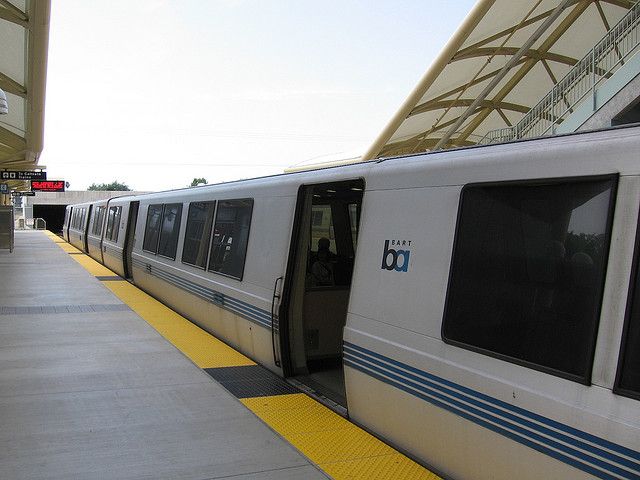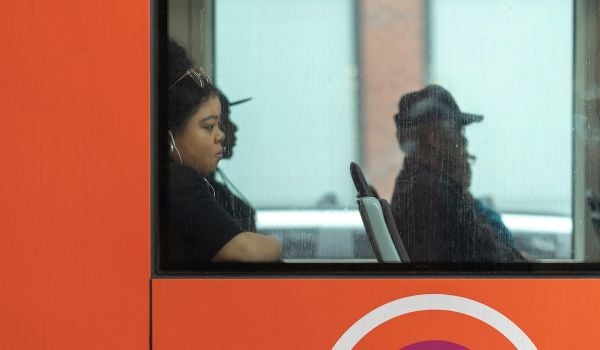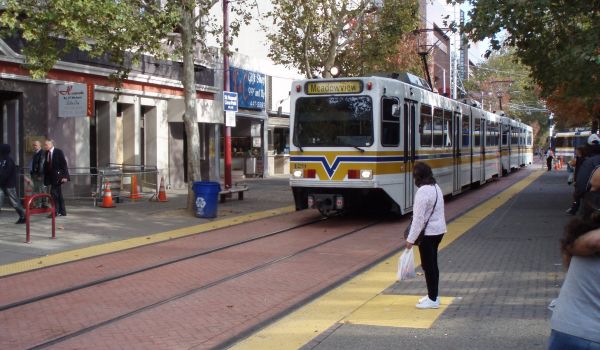The BART strike has given Silicon Valley disruption enthusiasts a megaphone during a time of crisis. They think alternative transportation apps like Uber and RidePal are going to eventually “disrupt” public transit so that such inconvenient workers’ strikes no longer force them onto helicopters.*
I don’t buy it. But I will say that more rather than fewer shared transportation options is good, especially in the wake of a crisis like a strike or natural disaster.
There was an excellent op-ed in the San Francisco Chronicle over the weekend discussing the lessons of the current transit strike and illustrating just why all these options are totally necessary. You should read John Diaz’s piece, but the gist is simple: There are 27 different transit operators in the area. Some 24,000 people go across the Bay Bridge every hour, 10,000 people pack Caltrains at morning rush hour, and the region’s population could grow by 2.1 million, reaching 9.3 million people, by 2040. Regional authorities and various forms of transit need to work in sync, whether BART employees go on strike again or an earthquake hits the area.
“We need buses to back up trains, and trains to back up buses, and carpools to back them both up,” Gabriel Metcalf, executive director of the non-profit SPUR, wrote on July 3. (Disclosure: SPUR is a Next City content partner.)
Interestingly, it seems like someone with power and influence has been listening to our friends at SPUR. In June, San Francisco Mayor Ed Lee announced a partnership between the Department of Emergency Management and Bay Share, a Bay Area sharing economy advocacy group. The point it to use the power of the informal economy that Uber and Lyft offer to help the city in the days and weeks after tragedies.
It’s called SF 72 and has a shiny website with a — how do I say this? — mildly obnoxious video and overly preachy manifesto that sounds like it was written by one of Gwyneth Paltrow’ s former bloggers.
But the idea is sound, and it’s great that the mayor’s office is behind it. It’s unifying different and complex systems when the city needs them most — in the face of disaster. It’s resiliency at its most basic: How can we make things work after disaster hits? Whether that’s using Airbnb for the displaced or dispatching Lyft and Uber to carpool lots during a transit strike, it’s using the shared economy for the greater good, not just for people in the same tax bracket.
* Read this Marketplace story to hear Sarah Lacy and other Silicon Valley technologists explain the fundamental difference between those striking union laborers and the tech industry. “People in the tech industry feel like life is a meritocracy,” explained Lacy, who started her technology news website PandoDaily with upwards of $2 million in backing from the tech giants she covers. “You work really hard, you build something and you create something, which is sort of directly opposite to unions.”
The Equity Factor is made possible with the support of the Surdna Foundation.

Bill Bradley is a writer and reporter living in Brooklyn. His work has appeared in Deadspin, GQ, and Vanity Fair, among others.

















